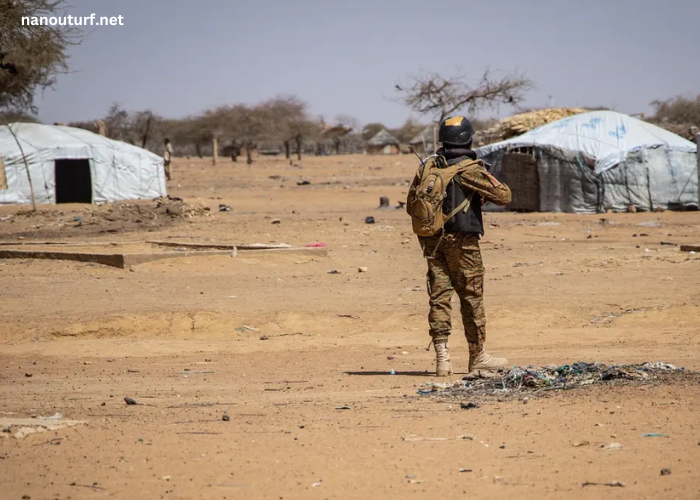Attaque Au Burkina Faso Aujourd’hui

Burkina Faso has been facing an escalating wave of violence attributed to extremist groups. The latest attack today underscores the precarious security situation in the country and raises pressing concerns about stability and governance. The attack, which targeted civilians, highlights the urgent need for effective security measures and community resilience against such threats.
Context of Violence in Burkina Faso
Burkina Faso is situated in the Sahel region of West Africa, an area that has been increasingly plagued by violence from various militant groups, including affiliates of Al-Qaeda and ISIS. Over the past few years, the country has experienced a dramatic increase in attacks, which have led to thousands of deaths and the displacement of millions of people. The violence is often fueled by intercommunal conflicts, poverty, and a lack of government presence in rural areas.
The current government has struggled to maintain security, often relying on military assistance from international partners. However, the ongoing instability has raised questions about the efficacy of these measures and the government’s ability to protect its citizens.
Details of the Recent Attack
Today’s attack occurred in a village known for its vulnerable population. Eyewitnesses reported that armed assailants descended on the community during the early hours, targeting both individuals and local infrastructure. Initial reports indicate significant casualties, with local hospitals overwhelmed by the influx of injured victims. This incident is part of a larger pattern of attacks that have targeted not only military installations but also civilians, schools, and places of worship.
As news of the attack spread, communities rallied in grief and solidarity, underscoring the emotional toll these incidents have on the population. Many families have lost loved ones, and the psychological impact of such violence cannot be overstated.
Humanitarian Consequences
The humanitarian implications of the attack are profound. Burkina Faso is already facing one of the worst humanitarian crises in the world, exacerbated by ongoing violence, food insecurity, and lack of access to basic services. With millions in need of assistance, the latest attack threatens to further complicate aid efforts. Humanitarian organizations often find it challenging to operate in conflict zones, leading to delays in delivering crucial supplies and support.
Moreover, the psychological trauma inflicted on the victims and witnesses will have lasting effects on the community. Children, in particular, are at risk of long-term mental health issues as a result of exposure to such violence.
Government Response and Security Measures
In the wake of today’s attack, the government has announced a state of emergency in the affected regions. This move is intended to enable a swift military response to secure the area and prevent further violence. However, many citizens express skepticism regarding the government’s ability to implement effective security measures. Previous attempts to quell violence have often resulted in temporary solutions rather than sustainable security.
The government is also calling for international support, emphasizing the need for a coordinated approach to combatting extremism in the Sahel. International partners have pledged support, but the effectiveness of military assistance remains under scrutiny.
Regional Implications
The attack in Burkina Faso is not an isolated incident; it reflects a broader trend of instability in the Sahel region. Neighboring countries, including Mali and Niger, are also grappling with similar security challenges, creating a volatile environment that transcends national borders. The rise of extremist groups in these areas poses a significant threat to regional stability, prompting concerns about the potential for wider conflicts.
Regional cooperation has become increasingly crucial. Collaborative efforts, including joint military operations and intelligence sharing, are essential to address the multifaceted nature of the threat. However, political tensions among countries in the region can hinder such cooperation, complicating the overall response to extremism.
The Role of the International Community
The international community plays a vital role in addressing the crisis in Burkina Faso. Multilateral organizations, such as the United Nations and the African Union, have been involved in peacekeeping and humanitarian efforts. However, their effectiveness often depends on the willingness of member states to contribute resources and support.
In addition, non-governmental organizations (NGOs) are actively working to provide humanitarian aid and support community resilience. These organizations face numerous challenges, including security risks and funding shortages, yet they remain committed to assisting vulnerable populations.
Building Resilience in Local Communities
While immediate security measures are crucial, there is also a pressing need to address the underlying issues that fuel extremism. Building resilience within local communities is essential for long-term stability. Educational initiatives, vocational training, and community engagement programs can help address the socio-economic factors that contribute to violence.
Engaging with local leaders and fostering dialogue among communities can also play a significant role in mitigating conflicts. Promoting inclusivity and understanding among different groups is vital for fostering a sense of belonging and reducing tensions.
The Path Forward
The situation in Burkina Faso is complex and requires a multifaceted approach. While military responses are necessary to ensure immediate safety, they must be complemented by long-term strategies aimed at promoting stability and development. Addressing issues such as poverty, unemployment, and lack of education is critical for reducing the appeal of extremist ideologies.
Furthermore, the voices of local communities must be central to any response strategy. Empowering citizens to take part in decision-making processes can foster a sense of ownership and responsibility, ultimately contributing to peace and stability.
Conclusion
The attack in Burkina Faso today serves as a stark reminder of the ongoing violence and instability in the region. It highlights the urgent need for comprehensive strategies to address the root causes of extremism while ensuring the immediate safety of civilians. As Burkina Faso grapples with these challenges, the resilience of its people and the support of the international community will be crucial in forging a path toward lasting peace and security.
In navigating this complex landscape, it is essential to remain committed to fostering dialogue, promoting development, and enhancing the capacity of local communities to resist extremism and build a brighter future for all.
Leave a Comment